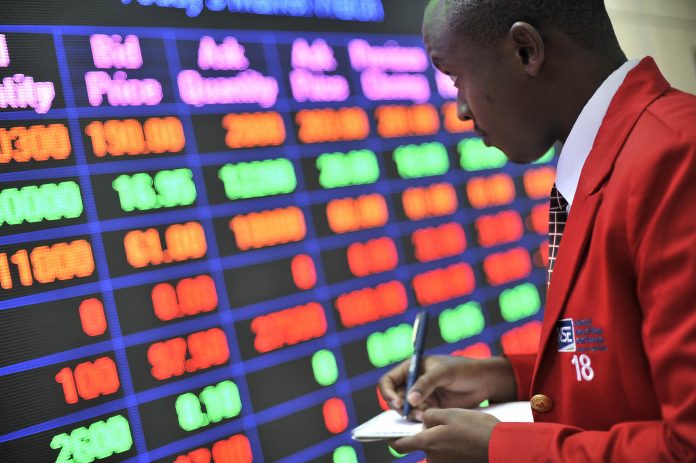
Kenyan stocks are escalating a selloff that has brought the country’s benchmark index to the world’s highest losses.
In September, the NSE’s all-share index fell for the fourth consecutive quarter, the longest such streak since 2017. The biggest losses were recorded by KCB Group Plc, Kenya’s largest bank by assets, which lost about 30% during the quarter.
Bank loan defaults have harmed investor trust. Kenya’s debt problem has also become a focus for investors, as the country faces spiraling energy and food import expenses, as well as depleted foreign-exchange reserves.
Kenya’s stock benchmark has lost a fifth of its value this year, the poorest performance among Bloomberg-tracked country indexes.
Experts predict that banks would be the top-performing stocks on the Nairobi Securities Exchange as the fiscal year comes to a conclusion, based on expected earnings growth and larger dividend distributions.
They contend that, although the global financial sector has struggled to recover from the rubble of Covid-19 and a weak geopolitical framework, the local banking sector has profited.
Recent changes, such as the introduction of risk-based lending and the reinstatement of taxes on bank-to-mobile transactions, are expected to boost banking sector stocks.
Banks In Business
Co-op Bank’s stock gained by 100 basis points to conclude the day at Sh11.95, up from 11.85 on Thursday, when it surpassed KCB for the first time as the latter’s share fell further.
Co-op Bank’s entire market capitalization concluded the week at Sh70 billion, a significant Sh4 billion difference from KCB, the country’s largest bank in terms of total assets.
On Friday, KCB’s share price plunged 4.75 per cent to a new 52-week low of Sh20.9, giving it a market worth of Sh67.1 billion.
Equity Bank Group, which posted an 8% increase in net profit for the first six months of the year, is predicted to provide investors with a 52% return.
Foreign investors withdrew $170 million from Kenya’s stock market last year, citing rising global concerns. This exacerbated the drop in NSE-listed corporations’ share prices.
Droughts, food insecurity, and soaring prices plagued Kenya, which had not yet fully recovered from its stock market catastrophe. Following Russia’s invasion of Ukraine, worldwide fuel prices rose, raising the cost of living.
Falling Kenyan Shilling
The Kenyan shilling is also rapidly depreciating against the US dollar.
For instance, Unga Group said that their loss from continuing operations grew as a result of the Kenya shilling’s devaluation and difficulty in securing an adequate supply of US dollars, resulting in considerable currency losses and interest payments.
In the last five years, the shilling has lost more than 37% of its value against the dollar. Worse, it is losing ground against other major global currencies.
And there is no indication that it will recover anytime soon.












